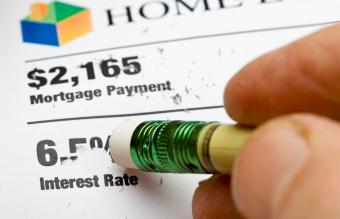
An owner financed mortgage is one in which the owner of a property provides a portion of -or the entire- purchase price for a property. In a full purchase price agreement, the owner provides a mortgage to the buyer for the full purchase price of the property minus any down payment the buyer provides. In a partial purchase price agreement, the owner provides a portion of the purchase price of the property, for example, any balance that the buyer could not obtain a mortgage for from a third party, such as a bank.
Sample Owner Financing Mortgage Agreement
You can access a printable sample owner financing mortgage by clicking the image below. The sample contract applies to both types of owner financing agreements.
This sample is provided here as an example, but is not meant to be used as an alternative to consulting a real estate attorney. It should be used for informational purposes only and does not constitute legal advice. Check with a qualified legal professional prior to offering or agreeing to terms in any mortgage contract.

If you need help downloading the printable contract, check out these helpful tips.
Reviewing the Contract
Review the sample contract closely to get a good sense of what generally goes in to these types of documents.
Introduction
The first part of the sample contract identifies the date upon which the agreement is to take effect, the parties to the contract, and the property being transferred. Ensure that this section is completed as thoroughly as possible to avoid any problems with identifying the parties or property.
Loan Terms
This section states the main purpose of the contract: to establish an owner-financed mortgage. It also identifies the agreed-upon purchase price for the property and that the price was agreed to after an appraisal. Having an appraisal and noting the occurrence of the appraisal prevents the buyer from later stating that the purchase price was too high in an attempt to invalidate the contract.
- The third paragraph in this section applies to partial purchase financing agreements. It sets out the buyer's obligations when this financing has been obtained. This section does not affect or invalidate the contract in any way if the contract is intended to establish full purchase price financing.
- The next two paragraphs in this section identify the amount of down payment the buyer is to provide, when that down payment must be provided, and the money that the owner is to loan the buyer. Being specific in these sections clearly establishes the financial obligations of the parties, making it more difficult for either to avoid providing the full amount of money promised to the other party.
- The statement in this section that a mortgage application has been completed by the buyer and received by the owner shows that the agreement is meant to be formal and that the owner had full knowledge of the buyer's finances prior to agreeing to lend the money. This prevents the owner from later claiming a lack of knowledge about the buyer's financial status should non-payment occur and foreclosure proceedings arise.
- The final paragraphs in this section identify the loan terms, specifically the interest rate for the loan, loan servicing, and repayment terms. These terms protect both parties against the other not fulfilling their obligations.
Loan Servicing
This section, which does not require inputting any additional information, allows the owner to hire an outside party to establish official mortgage documentation and process loan payments. Because of the legal nature of owner financing mortgage contracts, some owners may choose to do this to protect themselves should concerns arise about the buyer making timely payments.
Contract Execution
No contract is enforceable without proper execution. Some states may require that contracts be notarized for them to be legally enforceable. Again, do not finalize or execute this type of contract without consulting a licensed attorney who has expertise specific to real estate.







